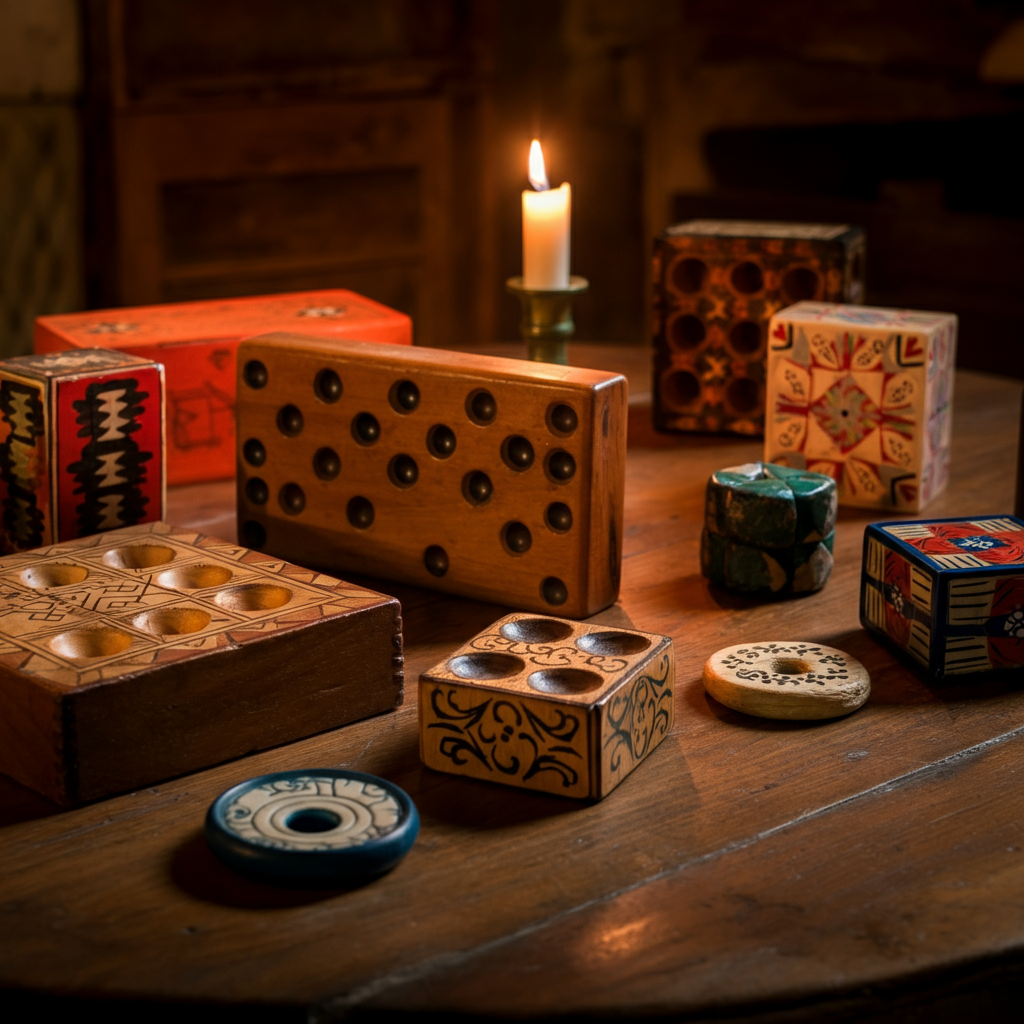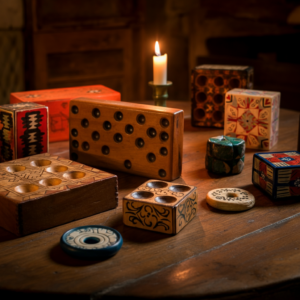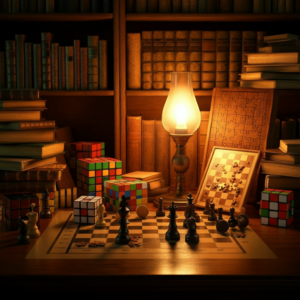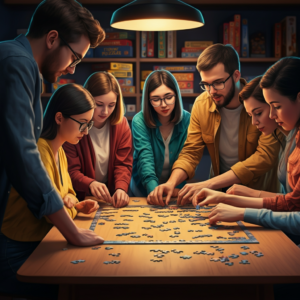
Whether you’re putting together a 1,000-piece jigsaw, tackling Sudoku, or cracking a challenging crossword, puzzles are an exciting way to test your mind. They require a mix of problem-solving skills, patience, and creativity—traits that anyone can develop with practice. If you’re new to puzzles or looking to up your game, this guide will provide you with practical tips and strategies to improve your problem-solving prowess.
Why Puzzle Solving is More Than Just Fun
Before we get into strategies, it’s important to understand why puzzles aren’t just a hobby—they’re a powerful mental workout. Solving puzzles enhances cognitive skills, sharpens your ability to focus, and strengthens problem-solving techniques. They also reduce stress and boost mood, making them a perfect activity for both relaxation and mental engagement.
But like any new skill, it’s easy to feel overwhelmed at first. Don’t worry—these strategies will help you break through the barriers and enjoy the process.
Strategy 1: Start Simple and Build Confidence
When you’re just starting, resist the temptation to jump into the deep end. Opt for simpler puzzles that match your current skill level, whether it’s a 300-piece jigsaw or an easy crossword. Starting with manageable challenges allows you to build confidence while familiarizing yourself with the mechanics of the puzzle type.
Example: If you’re new to Sudoku, start with a “beginner” or “easy” level puzzle. Mastering the basics will make higher difficulty levels less intimidating.
Actionable Tip:
Look for beginner-friendly puzzle books or apps. Many provide tutorials or hints to help you get started without frustration.
Strategy 2: Organize Your Approach
A chaotic approach can turn even a simple puzzle into an overwhelming task. The key to puzzle-solving is organization, and this applies across all puzzle types.
For Jigsaw Puzzles:
- Sort Pieces by Edges: Start by sorting out the edge pieces to frame the border. This gives you a foundation to build from.
- Group by Color & Pattern: Group pieces with similar colors or patterns. This helps you work section-by-section rather than tackling the entire puzzle at once.
For Crosswords:
- Fill in the Blanks You Know: Start by completing the answers you’re sure about. This will give you context clues for the trickier ones.
- Focus on Short Words First: Shorter answers are usually easier and can provide helpful hints for intersecting longer ones.
For Logic Puzzles:
- Break It Into Sections: Focus on one area of the puzzle to conquer it piece by piece. Seeing progress in one section can help ease feelings of overwhelm.
Actionable Tip:
Always have tools on hand. A pencil for Sudoku, a dictionary for crosswords, or a sorting tray for jigsaw pieces can make the process smoother.
Strategy 3: Look for Patterns
Most puzzles rely on patterns to guide you toward the solution. Train your eyes and brain to spot them.
Examples of Patterns:
- Crosswords: Clues often contain subtle hints in wordplay, such as puns or double meanings.
- Sudoku: Numbers in a Sudoku grid follow logical sequences. Look for rows, columns, or squares lacking particular digits.
- Jigsaw Puzzles: Identify distinct patterns or textures within the image.
Pattern recognition takes time but gets easier with practice. The more puzzles you complete, the faster you’ll pick up on recurring techniques or tricks.
Actionable Tip:
When faced with a tough spot, step back and take a fresh look. Sometimes seeing the puzzle from a slight distance makes patterns pop.
Strategy 4: Develop Problem-Solving Habits
Good problem-solving habits are invaluable for puzzlers. These include breaking down problems, working systematically, and being patient with yourself. Let’s break these down:
- Break It Down: Large puzzles often feel overwhelming because they’re multi-layered. Simplify the problem by breaking it into smaller tasks.
- Work Systematically: Instead of scattering your energy across the puzzle, zero in on one section or a specific clue at a time.
- Be Patient and Persevere: Puzzles are supposed to be challenging! If you’re struggling, take a short break and revisit the puzzle with fresh eyes.
Actionable Tip:
Keep trying different approaches. If one strategy doesn’t work, don’t hesitate to explore another angle.
Strategy 5: Collaborate (When Possible)
Puzzle-solving doesn’t have to be a solo endeavor. Tackling challenges with friends or family can make the experience more enjoyable and rewarding.
For example:
- Working on a jigsaw puzzle with others lets you divide tasks, such as sorting or assembling different sections.
- Sharing ideas on a crossword clue with a fresh pair of eyes can lead to a “eureka!” moment.
Plus, collaboration makes the process feel less like work and more like fun.
Actionable Tip:
Join puzzle-solving communities online or in-person. Platforms like Reddit have active subreddits dedicated to puzzles, where you can find tips, clues, and camaraderie.
Strategy 6: Practice Makes Perfect
The more puzzles you solve, the better you’ll get—it’s that simple. Regular practice not only sharpens your puzzle-solving skills but also makes overcoming difficulties feel like second nature.
Build a Routine:
- Dedicate 10–15 minutes daily to a puzzle. This could be a quick crossword over your morning coffee or a short Sudoku session before bed.
- Gradually challenge yourself with more complex puzzles as your confidence grows.
Actionable Tip:
Try different types of puzzles—crosswords, cryptograms, or logic puzzles—to develop a well-rounded skill set and keep things interesting.
Strategy 7: Celebrate Wins, Big and Small
Puzzles are all about the process AND the payoff. Don’t forget to celebrate your achievements—even small progress adds up. Completed that tricky corner of a 500-piece jigsaw? Solved your first intermediate Sudoku? Every win counts, and acknowledging milestones keeps the experience positive.
Actionable Tip:
Track your progress in a dedicated puzzle journal, noting completed puzzles and personal reflections. It’ll motivate you to keep going.
Rediscover the Joy of Puzzles
At its heart, solving puzzles isn’t just about logic or skill—it’s about enjoying the experience and challenging yourself. Whether you’re solving a Sudoku, piecing together a jigsaw, or taking on a cryptic crossword, remember to approach each puzzle with curiosity and patience.
Looking to challenge yourself further? We recommend checking out the online puzzle communities or apps that provide curated selections for all levels—grab your next brain teaser and watch your skills grow!







